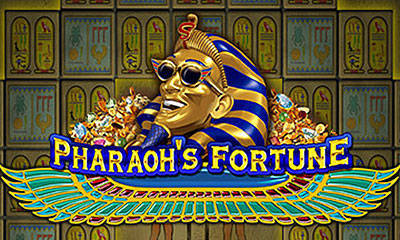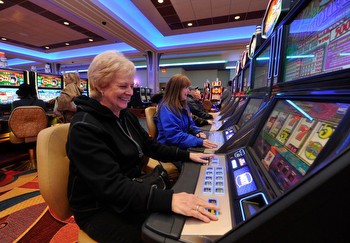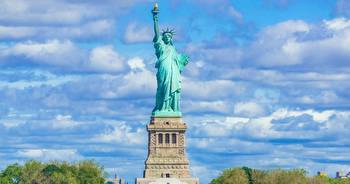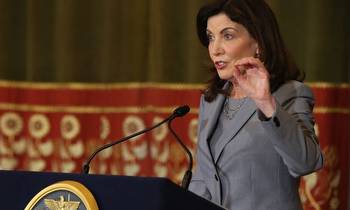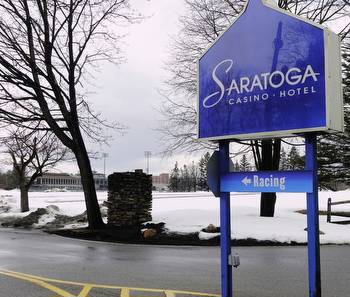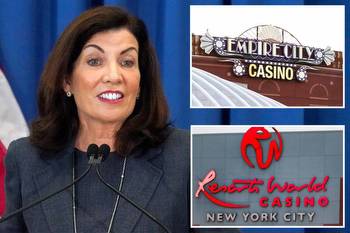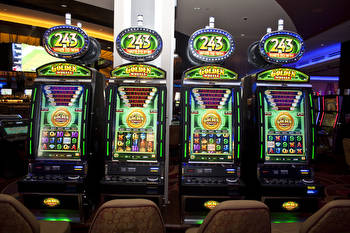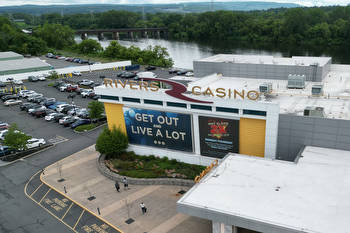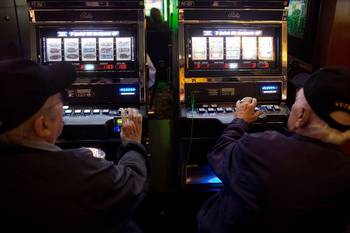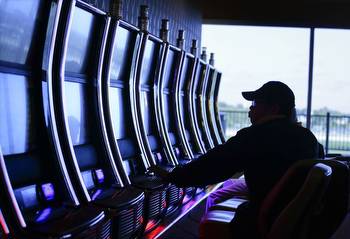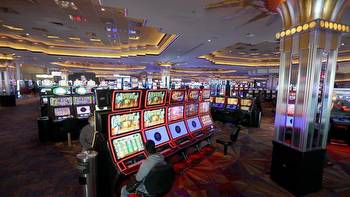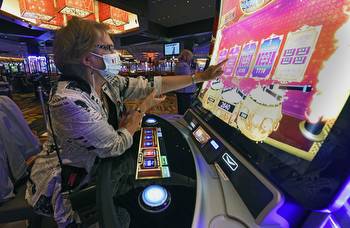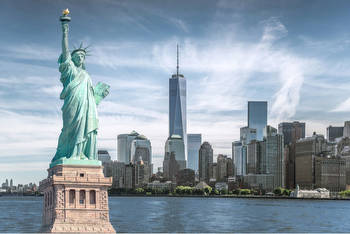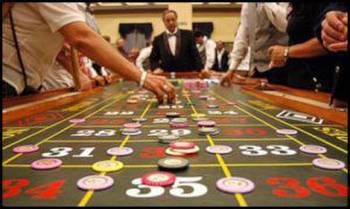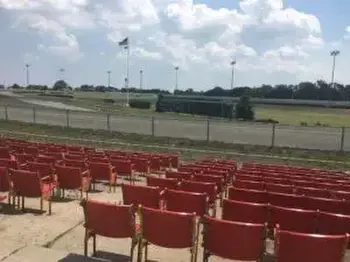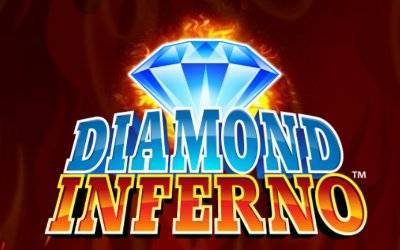High stakes are involved in the bid for three New York City-area casinos but it will take a while

SARATOGA SPRINGS - The New York City area will without a doubt have three new casinos, but don’t bet on all three opening anytime soon.
While the law allowing non-Indian commercial casinos technically allows these downstate gambling facilities to open next year, the process for approval is so involved and tortuous that former Gov. David Paterson compared it to nuclear science. “You could learn all there is to know about nuclear physics before you learn how to get through this process,” Paterson said earlier in the week.
Paterson now represents the Las Vegas Sands casino firm in the sweepstakes bidding that will play out in coming months to get a New York City-area franchise.
He was among the players and gaming industry experts at an annual Racing and Gaming conference sponsored by Spectrum Gaming Group, a national gambling industry consultant. The event was at the Saratoga Hilton.
When casino gambling was legalized in 2014, it was decided to let four such facilities open across upstate New York first, with three downstate facilities opening in 2023.
The idea was to give casinos in less-populated upstate communities time to build up clientele lest downstate facilities, enjoying proximity to the state’s population centers, scoop up all of the business.
All four upstate casinos, Tioga Downs in the Southern Tier; del Lago in between Syracuse and Rochester; Resorts World Catskills near Monticello and Rivers in Schenectady, were up and running shortly after these facilities were legalized.
Now, permits for the downstate ones can be issued as early as 2023.
One company that may be in the mix is Rush Street Gaming, which operates Schenectady’s Rivers casino. They were among the more than half-dozen firms in late 2021 that responded to a "request for information" about the bidding process, put out by the state Gaming Commission, which regulates and would have to approve new casinos.
But competition for getting one of these three downstate licenses is slower and more complex than in upstate.
Downstate approval will require a much more “robust” local input component than the upstate process, noted Pat Brown, a retired casino lobbyist who moderated a panel discussion on these new licenses.
Applicants in any of New York City’s five boroughs, for example, have to get a two-thirds vote from special
advisory committees that will be appointed.
Each borough committee must include representatives from the mayor, the borough president, the city council and the governor as well as their local Senate and Assembly members.
Given the byzantine nature of New York City politics, several of the panelists said just getting a vote on these committees will be difficult. Moreover, the committees haven’t been named yet.
“This is where the slowdown could be,” said Westchester Democratic Assemblyman Gary Pretlow, who chairs the Assembly’s Racing and Wagering Committee.
Several speakers agreed that two companies may already have a leg up on the competition for licenses.
Those would be MGM Resorts and Genting, the Malaysian-based casino developer.
MGM already runs the Empire City racino in Yonkers, Westchester County, while Genting has a racino in Queens.
Racinos are harness horse racing tracks with video lottery terminal or VLT games that allow people to play the state lottery with slot machines.
Having already-established facilities, Genting and MGM could quickly transition their racinos into full-service casinos. That would involve replacing the VLT terminals with traditional slot machines and putting in table games such as poker parlors and roulette wheels.
Genting and MGM are also large enough to pay the high entry fee that will be required to compete for a downstate license. Competitors will likely have to put up at least $500 million as an application fee.
“That’s the ante,” said Brown.
“We’re going to have a battle of the titans here in New York,” he added.
rkarlin@timesunion.com 518 454 5758 @RickKarlinTU







